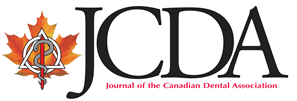 |
Current Issue | Subscriptions | ||||||
| Back Issues | Advertising | |||||||
| More Information | Classified Ads | |||||||
| For Authors | Continuing Education | |||||||
|
||||||||
 |
|
|
The oral cavity has long been considered a potential reservoir for respiratory pathogens. The mechanisms of infection could be aspiration into the lung of oral pathogens capable of causing pneumonia, colonization of dental plaque by respiratory pathogens followed by aspiration, or facilitation by periodontal pathogens of colonization of the upper airway by pulmonary pathogens. Several anaerobic bacteria from the periodontal pocket have been isolated from infected lungs. In elderly patients living in chronic care facilities, the colonization of dental plaque by pulmonary pathogens is frequent. Notably, the overreaction of the inflammatory process that leads to destruction of connective tissue is present in both periodontal disease and emphysema. This overreaction may explain the association between periodontal disease and chronic obstructive pulmonary disease, the fourth leading cause of death in the United States. These findings underline the necessity for improving oral hygiene among patients who are at risk and those living in long-term care institutions.
MeSH Key Words: aged; periodontal diseases/epidemiology; pneumonia, aspiration/epidemiology; pneumonia, aspiration/ prevention & control
Reply to this article | View replies [0]
|
|
|
Full text provided in PDF format |
|
| Mission Statement & Editor's Message |
Multimedia Centre |
Readership Survey Contact the Editor | Français |
|